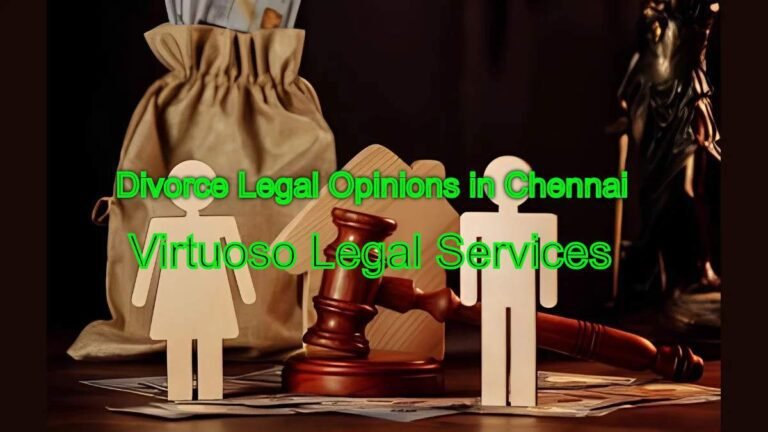Upholding Constitutional Rights: Constitutional Law Legal Opinions
Upholding Constitutional Rights: The Constitution of India stands as the supreme law of the land, a living document. That enshrines the fundamental rights of every citizen. Lays down the framework for our democratic governance. It is the ultimate source of legal authority, and its interpretation shapes the very fabric of our society. At Virtuoso Legal Services – Expert Legal Solutions 24×7, we understand the profound significance of constitutional law. We recognize that providing astute and well-reasoned legal opinions on constitutional matters is not merely an academic exercise. Rather, it is a crucial service that underpins the rule of law and safeguards individual liberties. Against potential encroachments by the state or other entities.
Upholding Constitutional Rights: Constitutional Law Legal Opinions: Virtuoso Legal Services
The Indispensable Role of Constitutional Law Legal Opinions
In a complex legal landscape, where legislative actions, executive orders. Even judicial pronouncements can be challenged on constitutional grounds, the need for expert legal opinions becomes paramount. Businesses, organizations, and individuals often find themselves at crossroads, grappling with the constitutional validity of certain laws or actions. Consequently, a meticulously crafted legal opinion from seasoned constitutional law experts can provide clarity, mitigate risks, and guide strategic decision-making. Furthermore, these opinions serve as invaluable tools for understanding the scope and limitations of governmental power. Ensuring that actions remain within the bounds of the Constitution.
Delving into the Realm of Fundamental Rights
The cornerstone of our Constitution lies in Part III, which guarantees fundamental rights to all citizens. These rights, including the right to equality, freedom of speech and expression. Freedom of religion, cultural and educational rights, and the right to constitutional remedies. Not absolute but are subject to reasonable restrictions. Therefore, interpreting the scope and applicability of these rights in specific contexts often necessitates a deep understanding of constitutional jurisprudence. For instance, a business might seek our opinion on whether a particular government regulation. Infringes upon its fundamental right to carry on trade or business under Article 19(1)(g). Similarly, an individual might require our assessment of whether a state action violates their right to privacy. Right that has been interpreted by the Supreme Court. As an integral part of Article 21 (right to life and personal liberty).
Moreover, the right to constitutional remedies, enshrined in Article 32, is itself a fundamental right. It empowers individuals and entities to directly approach the Supreme Court for the enforcement of their fundamental rights. Consequently, legal opinions often analyze the availability. Efficacy of these constitutional remedies in specific situations, guiding clients on the appropriate course of action to protect their fundamental rights.
Examining the Distribution of Powers: Federalism and Separation of Powers
Beyond fundamental rights, the Constitution also establishes a federal structure of governance, dividing powers between the Union and the States. Additionally, it adheres to the principle of separation of powers among the legislature, the executive, and the judiciary. Therefore, constitutional law legal opinions frequently address questions concerning the legislative competence of Parliament and state legislatures, the extent of executive authority, and the scope of judicial review. For example, a dispute might arise regarding whether a particular law enacted by a state legislature falls within its enumerated powers under the Seventh Schedule of the Constitution. In such cases, our legal opinions would meticulously analyze the relevant entries in the Union, State, and Concurrent Lists to determine the constitutional validity of the law.
Furthermore, the doctrine of separation of powers ensures that no single branch of government exercises absolute authority. Legal opinions often scrutinize actions by one branch to determine if they encroach upon the functions of another. For instance, we might be asked to assess whether a judicial order constitutes judicial overreach or whether an executive action amounts to an impermissible exercise of legislative power.
Interpreting Constitutional Provisions: The Role of Judicial Review
The power of judicial review, vested in the High Courts and the Supreme Court, is a crucial mechanism for upholding the supremacy of the Constitution. Through judicial review, the courts can examine the constitutional validity of laws and executive actions. Consequently, legal opinions often anticipate how the courts might interpret a particular constitutional provision or the validity of a specific law. This involves analyzing the text of the Constitution, the legislative history, the pronouncements of the Supreme Court in landmark judgments, and the prevailing legal principles.
For example, the interpretation of Article 14, which guarantees equality before the law and equal protection of the laws, has evolved significantly through judicial pronouncements. Legal opinions addressing issues of discrimination would delve into this rich jurisprudence to determine whether a particular classification is constitutionally permissible or violates the equality principle. Similarly, the interpretation of the term “law” under Article 13(3)(a) has broadened to include not just legislative enactments but also ordinances, orders, bye-laws, rules, regulations, and notifications. Therefore, legal opinions must consider the constitutional implications of a wide range of governmental actions.
Navigating the Amendments to the Constitution
The Constitution of India is not a static document; it has been amended several times since its inception to reflect the changing needs and aspirations of the nation. However, the power to amend the Constitution is not unlimited. The Supreme Court, in the landmark Kesavananda Bharati case, propounded the “basic structure” doctrine, which holds that Parliament cannot amend the fundamental features of the Constitution. Consequently, legal opinions sometimes involve analyzing whether a particular constitutional amendment violates the basic structure doctrine. This requires a thorough understanding of the essential features of the Constitution, such as its federal character, secularism, democracy, and the rule of law.
The Expertise of Virtuoso Legal Services in Constitutional Law
At Virtuoso Legal Services – Expert Legal Solutions 24×7, we pride ourselves on our deep understanding and expertise in constitutional law. Our team of seasoned legal professionals possesses a comprehensive grasp of the intricacies of the Constitution, the nuances of judicial interpretation, and the evolving landscape of constitutional jurisprudence. We are committed to providing our clients with meticulously researched, well-reasoned, and timely legal opinions that address their specific constitutional law concerns.
Whether you are a corporation grappling with the constitutional validity of a new regulation, an organization seeking to understand the scope of your fundamental rights, or an individual facing a potential violation of your constitutional liberties, our team is equipped to provide you with the expert guidance you need. We understand the high stakes involved in constitutional matters and are dedicated to offering clear, concise, and actionable legal opinions that empower you to make informed decisions and protect your interests.
Frequently asked questions with answers regarding constitutional law legal opinions
A: Your business might need such an opinion to assess the constitutional validity of new laws or regulations impacting your operations, to understand your fundamental rights as a legal entity, or to navigate potential legal challenges based on constitutional grounds. It helps in strategic decision-making and risk mitigation.
A: These opinions can cover a wide range of areas, including fundamental rights (like freedom of trade), the distribution of powers between the Union and States, the validity of legislative or executive actions, the interpretation of specific constitutional articles, and the implications of constitutional amendments.
A: Unlike general legal advice that might focus on statutory law or contracts, a constitutional law legal opinion specifically analyzes an issue through the lens of the Constitution of India, its fundamental principles, and the interpretations laid down by the Supreme Court and High Courts.
A: You should provide all relevant facts, the specific law or action in question, any related documents, your specific concerns or questions regarding its constitutional validity, and the potential impact on your business or interests.
A: Virtuoso Legal Services offers expert analysis by experienced constitutional law professionals. We provide meticulously researched and well-reasoned opinions, offering clarity and guidance on complex constitutional matters, available round-the-clock to address your urgent legal needs.
Conclusion: Ensuring the Supremacy of the Constitution
In conclusion, constitutional law legal opinions play a vital role in upholding the supremacy of the Constitution and safeguarding the fundamental rights of all. They provide clarity in a complex legal environment, guide strategic decision-making, and ensure that governmental actions remain within constitutional boundaries. At Virtuoso Legal Services – Expert Legal Solutions 24×7, we are committed to providing expert legal opinions on constitutional matters, drawing upon our deep understanding of the Constitution, judicial precedents, and evolving legal principles. We stand ready to assist you in navigating the intricacies of constitutional law and ensuring that your rights and interests are protected under the supreme law of the land. Our 24×7 availability ensures that expert legal assistance on these critical matters is always within reach.
Read More
- Compensation Guaranteed: Legal Opinion Services
- Navigating Corporate Laws: The Best Company Law Legal Experts
- Seeking Clinical Justice: Clinical Negligence Legal Services
- Maximizing Claims: Legal Opinion Specialists
- Justice for All: Civil Case Legal Opinion Experts
- The Ministry of Law and Justice, Government of India:
![Virtuoso Legal Services [Best Legal Opinion Services 24×7]](https://legalopinion.org.in/wp-content/uploads/2023/09/cropped-logo.png)






